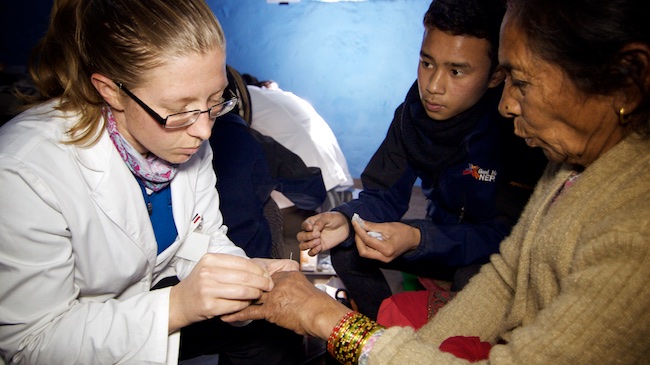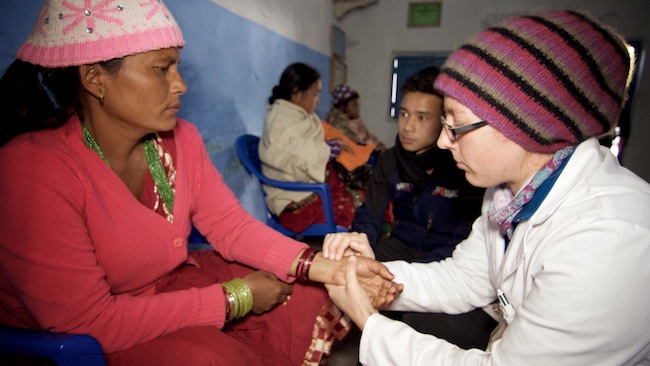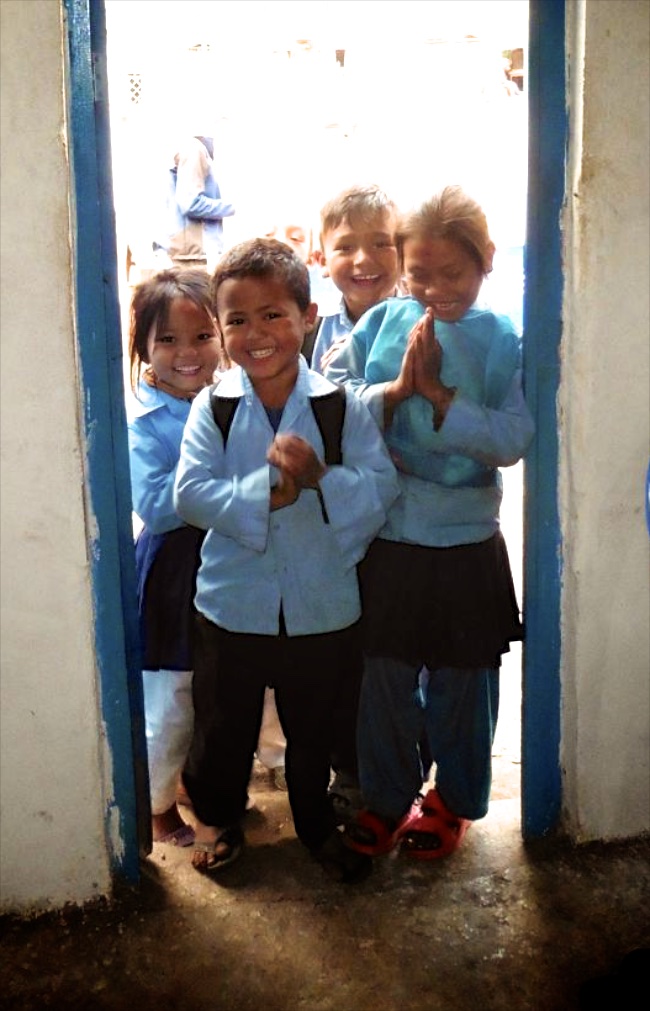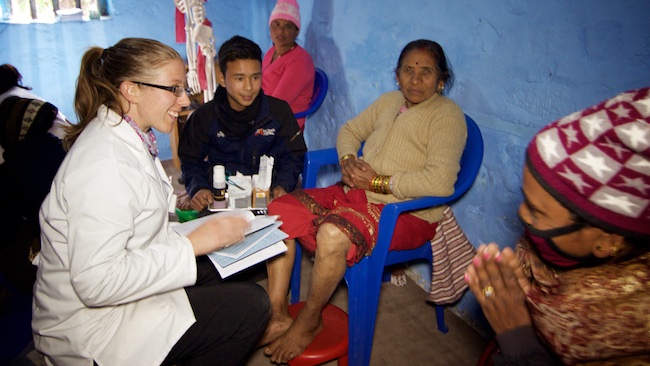
Here in Nepal, very little is convenient. Nothing is handed to you on a platter ( except our dinner, thanks Auntie). The modern world of convenience has not yet arrived to Bimphedi. Their is no internal plumbing in the houses, nor heating, nor appliances. There is wifi though? Bizarre.
Everything takes 10 times longer because of this; cleaning clothes, having a shower, making coffee, making food etc. And we live in luxury compared to most locals. We enjoy hot water, electricity, and wifi!
It is much more apparent and more emotional at clinic. At home when someone presents to my clinic, they have probably already seen a doctor, and had some scans or tests (depending on their condition). They may already be under the care of a specialist. They usually know what they have and have a pretty good idea of how they got it. For the most part, patients arrive with a clear cut medical diagnosis. (NB. I'm talking about the Australian system here, our national medical system is, thankfully, very good). If they don't already have a diagnosis, it's free/cheap to obtain one. I can simply say, 'Go consult your Doctor, then come back to see me' and I can be confident that it will be taken care of on the other end. After this has been done, it is my job to apply Chinese Medical thinking and methods to their health problem.

At home, lumps are scanned, biopsied, and removed. At home, digestive ulcers are viewed by endoscopic cameras, medicine is given, and dietary advice is understood. Alcoholics have access to the help they need. STIs are tested for and managed. Lower backs are x-rayed and orthopaedically tested. The list goes on.
In Nepal, this is not the reality. Patients will come to our clinic with the problem, and no information beyond that.
Like the lady with the grapefruit-sized lump on her inner right thigh. It hurts. It's been there for 5 years. Can you help?
Like the woman with sore breasts for 6 months. They hurt. There are lumps. What's wrong?
Like the man with the chronic leg infection. Sometimes is weeps pus, sometimes it doesn't.
The children with paralysis from high fevers that weren't treated.
The out of control diabetes and high blood pressure.
The huge number of alcoholics.

We are triage; It is our job to ask all the right questions. Get an accurate symptom picture. Know which diseases are indicated. Know which tests will confirm or rule out these diseases. Hope that when we send them to the local hospital, they will actually perform the tests, prescribe the right medication, and if we're really lucky, explain what's wrong to the patient. This is all only if the patient can even pay for it at all.
We are also medical counsellors; We explain what is wrong to the patients as the doctors never seem to. And give good advice, a crucial part of health care in my opinion. How can people care for themselves and their families when they are given no information and their illiteracy prevents them from accessing it themselves.
And, then of course, we are doctors ourselves, performing treatments and providing ongoing care.
So this is what was meant when we were told that we are now 'Primary Care Physicians'? Ouch

In this setting I am finding the need to step up in a huge way. My clinical knowledge, especially western medicine diagnoses and disease management has had to be expanded in a big way. Not a bad thing, certainly. Thank God for the team of practitioners around me and the Merck Manual app! I've learnt that the important thing is not to know everything, that is impossible. The important thing is to care, and be willing to try and figure it out.
I've never learned so much, in such a hands-on way, in such a short space of time. Thank you ARP, my team mates, and, everyone back home who helped get me here.
Most of all, thank you to my Nepali patients for being the sweetest and the absolute toughest teachers I have ever known.
Namaste,
Dr Leni











